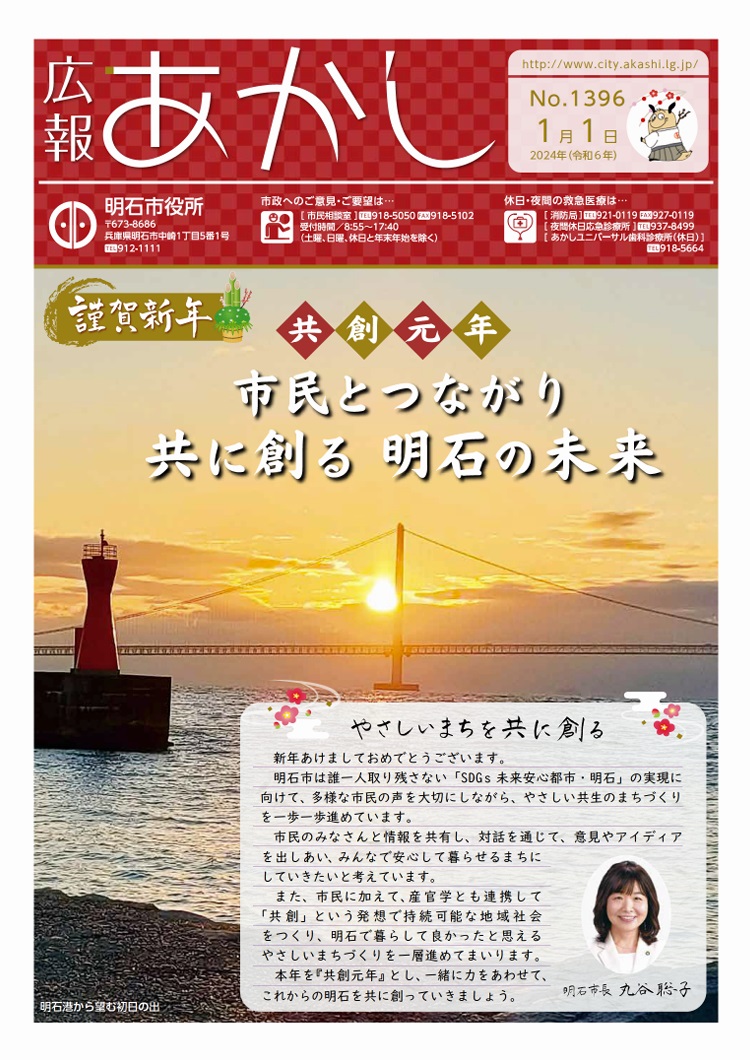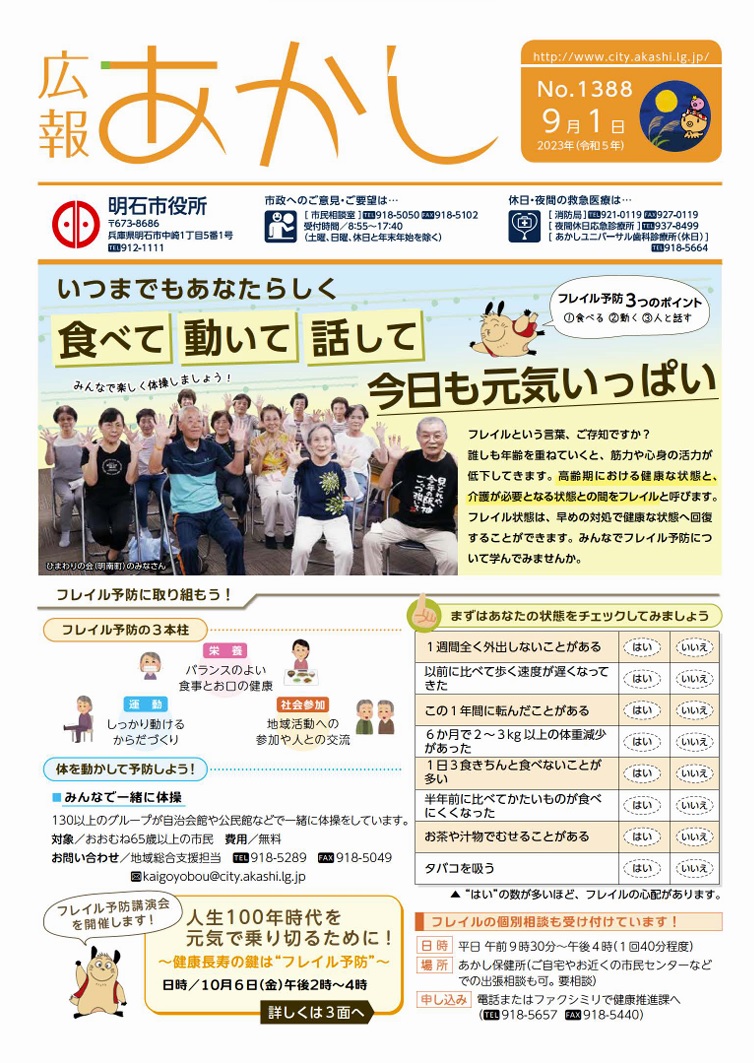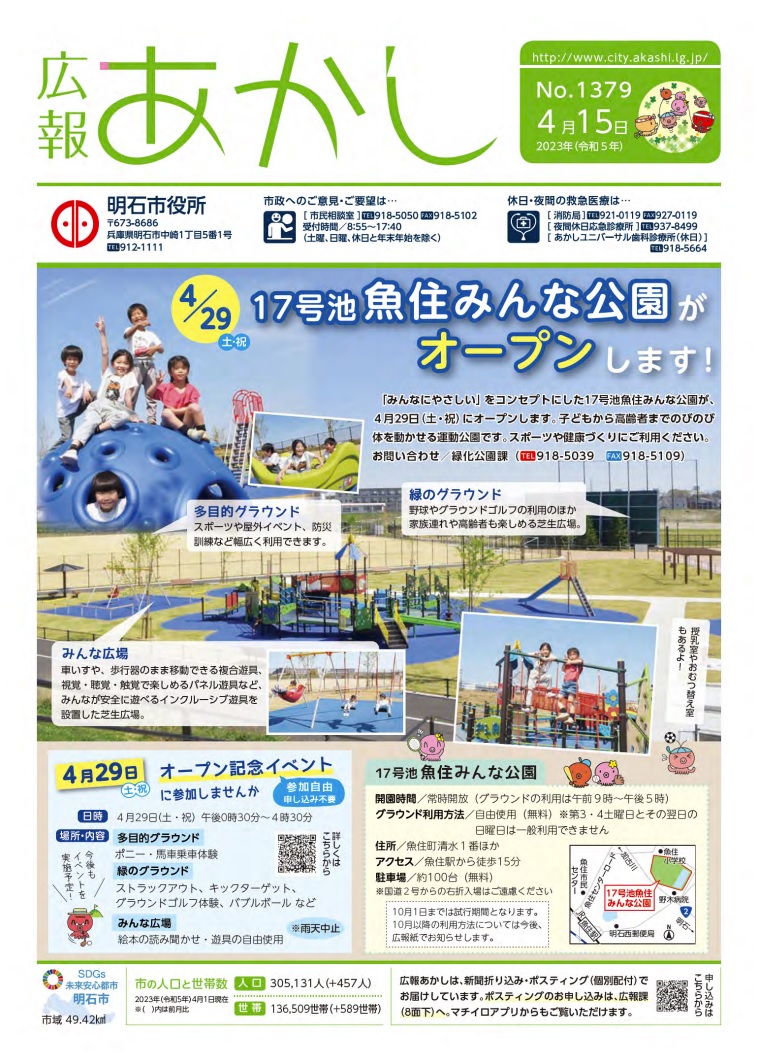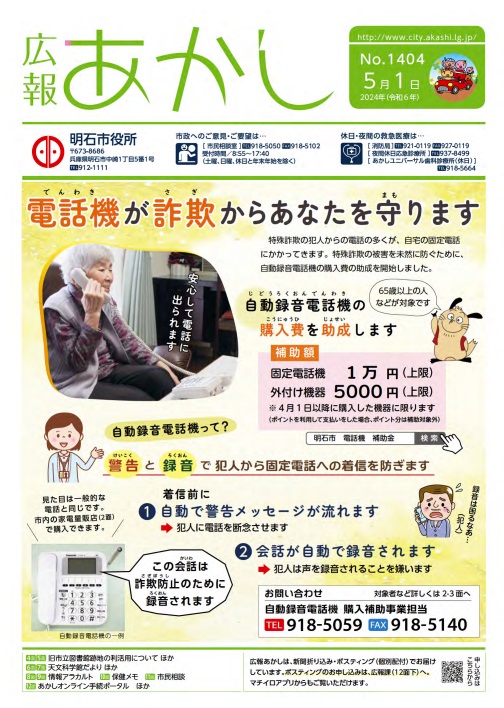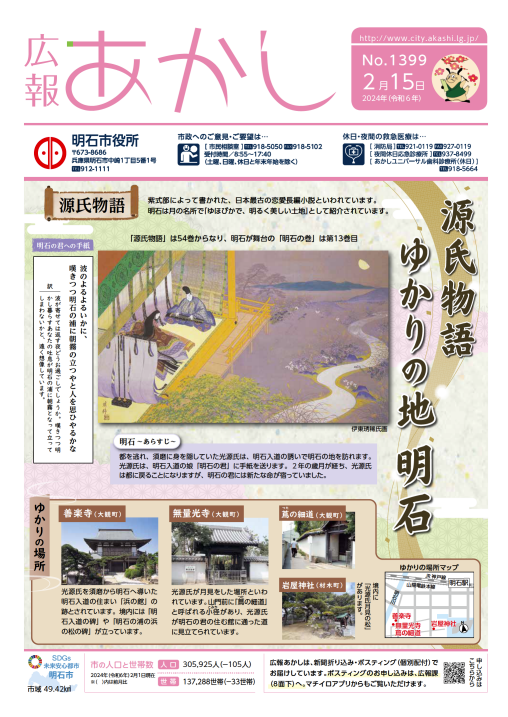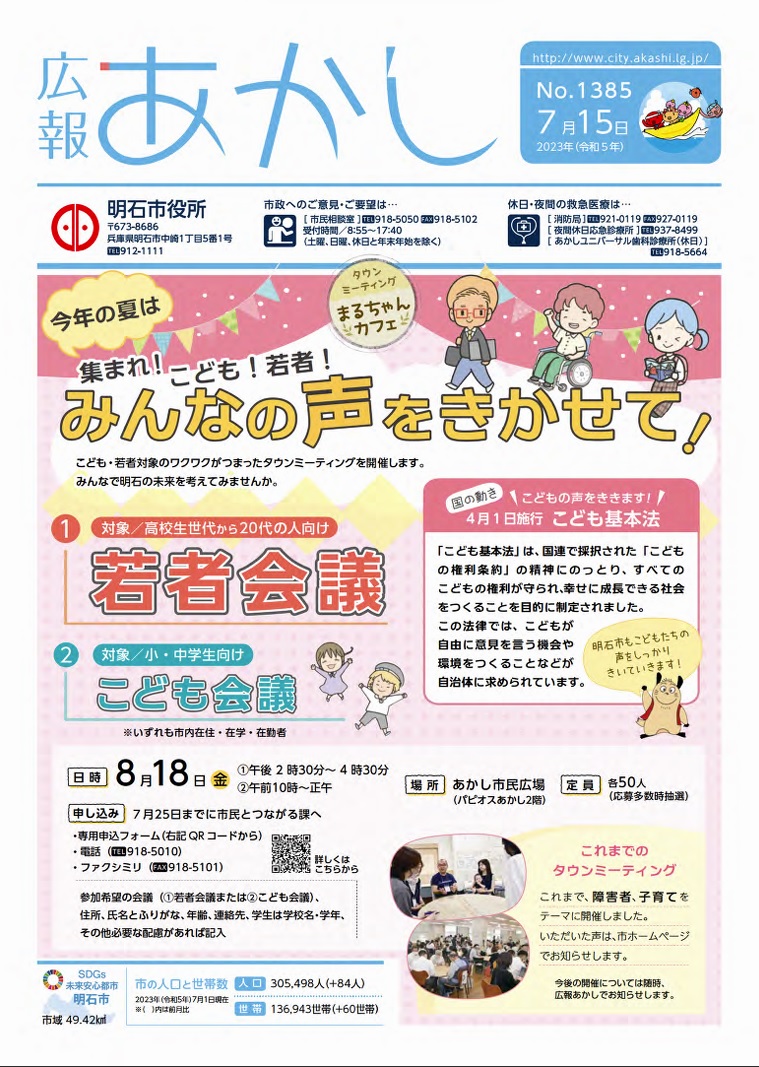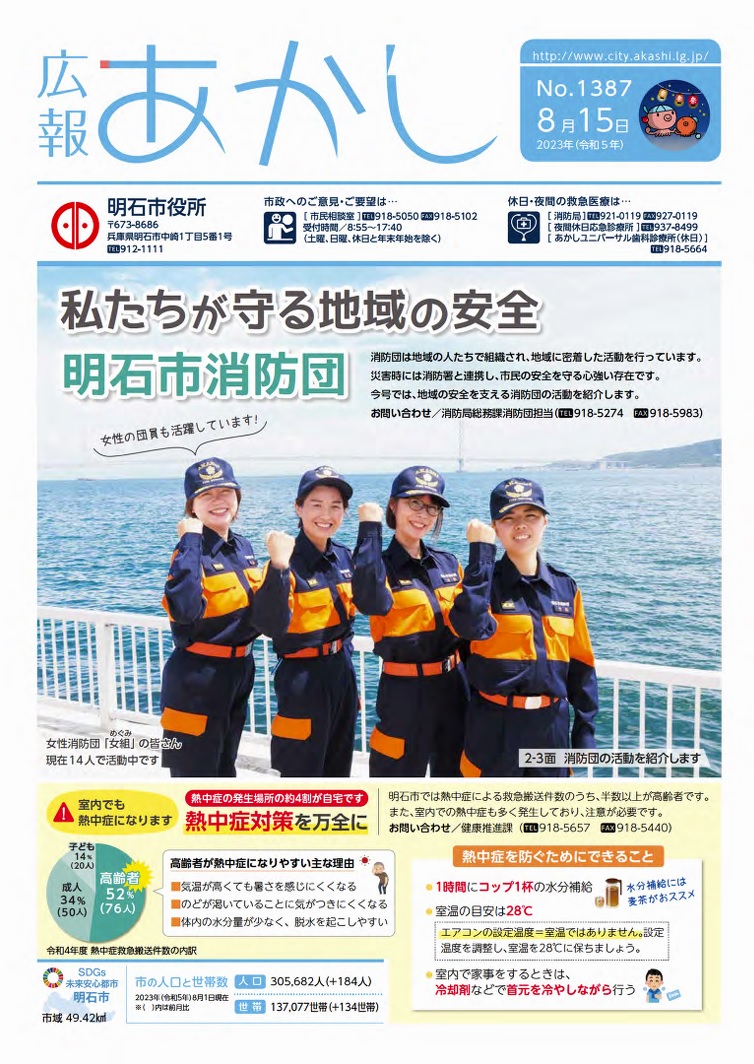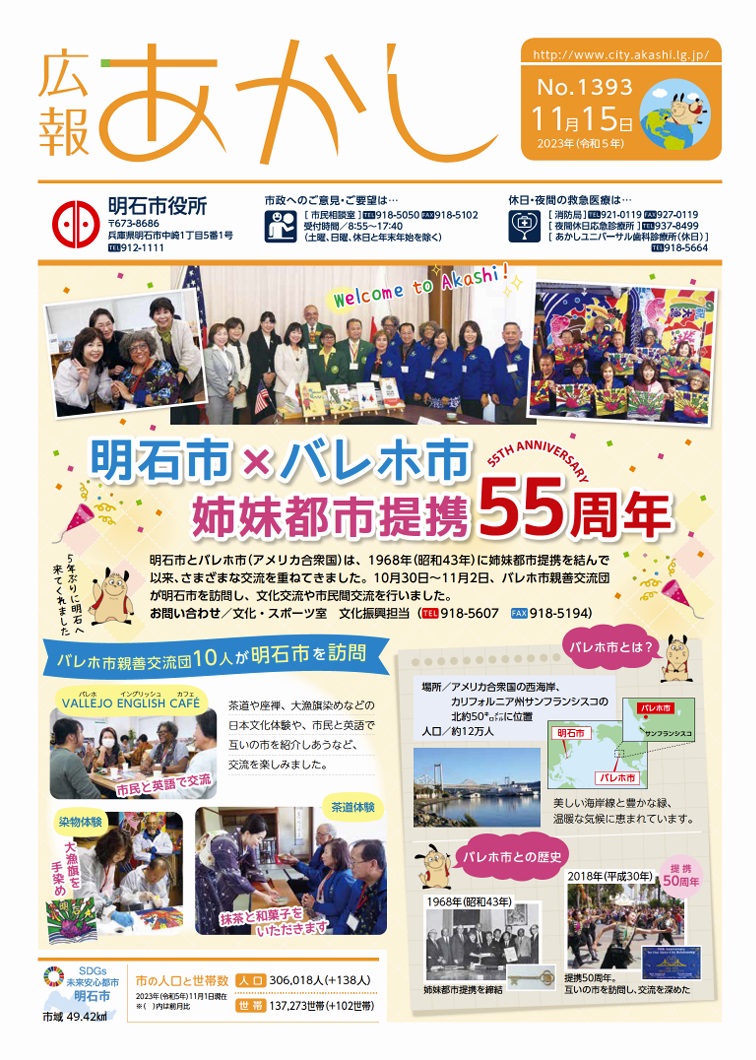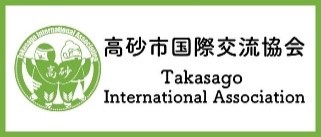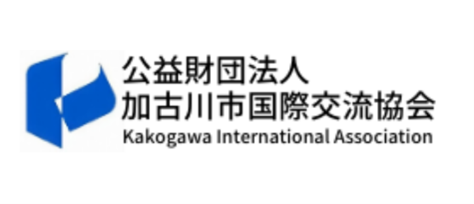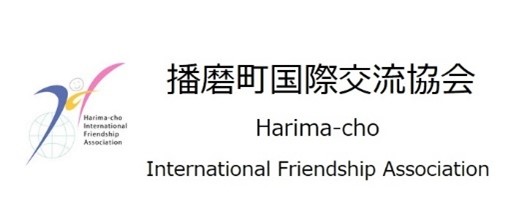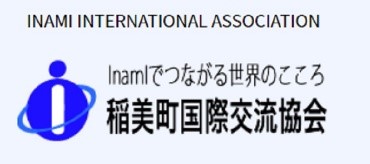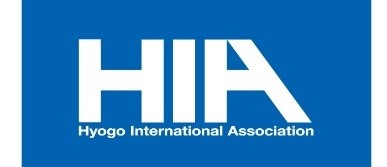The Akashi Newsletter (Koho Akashi) is a newsletter published by Akashi City. It releases on the 1st and the 15th of each month. There are many announcements in each issue of the Akashi Newsletter. We have selected five of the most important or useful announcements and translated them into English.
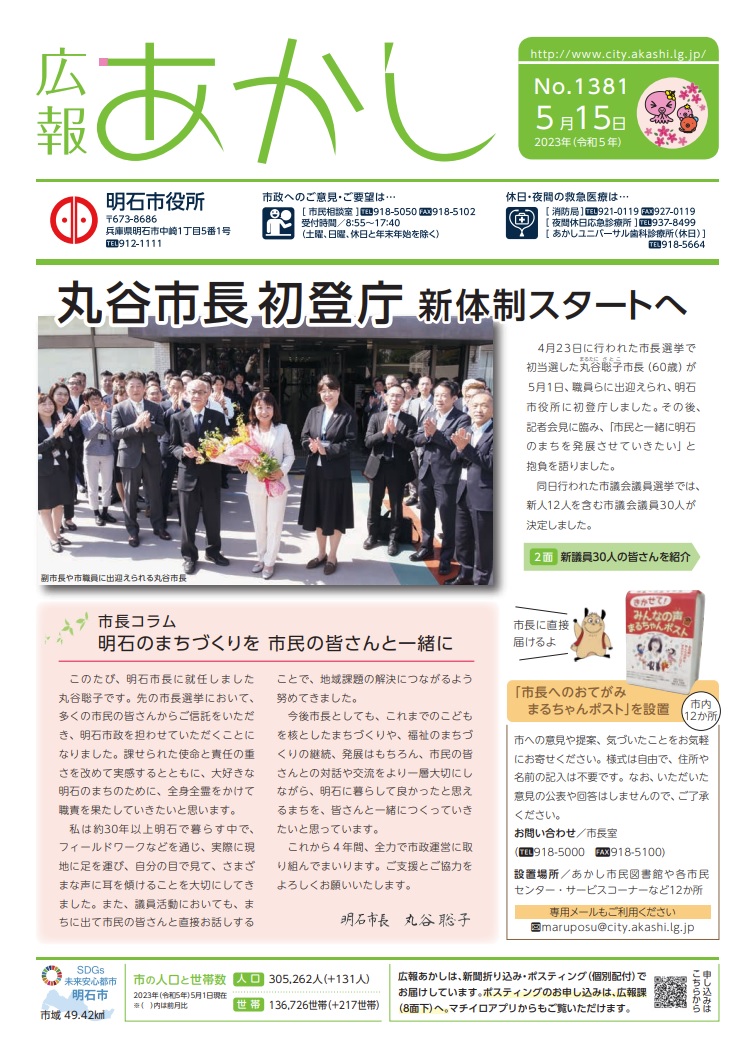
May 15th Announcements
Think About How to Protect Yourself and Your Family from Natural Disasters
Natural disasters are disasters that involve things like heavy rain or strong winds. The following is a list of steps you can take to prepare before a disaster occurs, or to deal with a disaster as it happens.
*You can read more detailed explanations of some of the terms below in the “What to Watch Out for When a Disaster Occurs” (災害が 起きたときに 注意すること). This is a document located on the Manmaru Akashi website. However, currently the document is only available in Japanese.
*Akashi City has sent an “Akashi Hazard Map” to every household. You can read over this to see whether there is anything in your area which you should be especially careful about. It also includes an Evacuation Shelter Directory (避難場所一覧表), which is a page with the locations of all the Evacuation Shelters (避難所, hinanjo) in Akashi.

- What To Do Before a Disaster Occurs
- There are various kinds of water-based disasters, such as flooding, storm surges (this is a rise in seawater levels caused by a storm), and tsunamis.
- Evacuation Shelters are places where you can evacuate in case of a disaster. The location of these shelters is determined by Akashi City, and anyone can use them for free.
- Prepare in advance what you will take with you when you evacuate. Keep it ready, so you can easily grab it at a moment’s notice.
- Be sure to clean up around your house and keep it tidy.
- Keep enough supplies at your house for you to live on for about three days.
- If you register at the “Disaster Prevention Net Akashi” (防災ネットあかし, bousai netto Akashi), you can get information about any disasters. You can register at the QR code here:

- If a Disaster Occurs, Prioritize Safety Above Everything Else
- If the roads are flooded or being flooded with water, listen to vital safety information and act carefully and calmly.
- You can use the “Disaster Prevention Net Akashi”, your television, or the radio, to get information about any Advisory (注意報, chuuihou) or Warning (警報, keihou) that may be issued.
- The Japan Meteorological Association has a “Alert Level” system (警戒レベル, keikai reberu) to measure the severity of a natural disaster. If they issue an Alert Level 4, please be sure to evacuate to a safe place.
- When evacuating, please move as carefully and safely as possible.
If you have any questions about this article, please contact the General Safety Planning Office. Their phone number is 078-918-5069. Their fax number is 078-918-5140.
Be Careful About Heatstroke
As the days get warmer, the number of people who suffer from heatstroke are increasing. Heatstroke is when you feel sick because of the effects of high temperatures on your body. Symptoms may include some of the following:
- For a light case of heatstroke: your hands or feet may feel numb or tingly. You may feel dizzy when you stand up. You may get cramps in your legs.
- For a moderate case of heatstroke: You may feel tired or nauseous. You may have a headache.
- For a serious case of heatstroke: You may lose consciousness. You may go into convulsions.
May is when cases of heatstroke first start to appear. In this month, people are still not used to the increasing temperatures. By exercising or moving your body in some way to work up a sweat, you can prevent heatstroke.
- If you think you may have heatstroke, here is what you should do:
- Go someplace cool to allow your body’s temperature to go down.
- Drink water with a little bit of salt in it. Alternatively, have a sports drink.
- If you are with someone who you think is suffering from heatstroke, call out to them. If they don’t respond to you, then you should call an ambulance for them.
- To protect yourself from getting heatstroke at this time of year, try the following things:
- Do some mild to strenuous exercise or some stretches. This is to make yourself sweat.
- Take a bath and warm your body up so that you will start sweating.
- Be sure to drink plenty of water.
If you have any questions about this article, please contact the Health Promotion Division. Their phone number is 078-918-5657. Their fax number is 078-918-5440.

